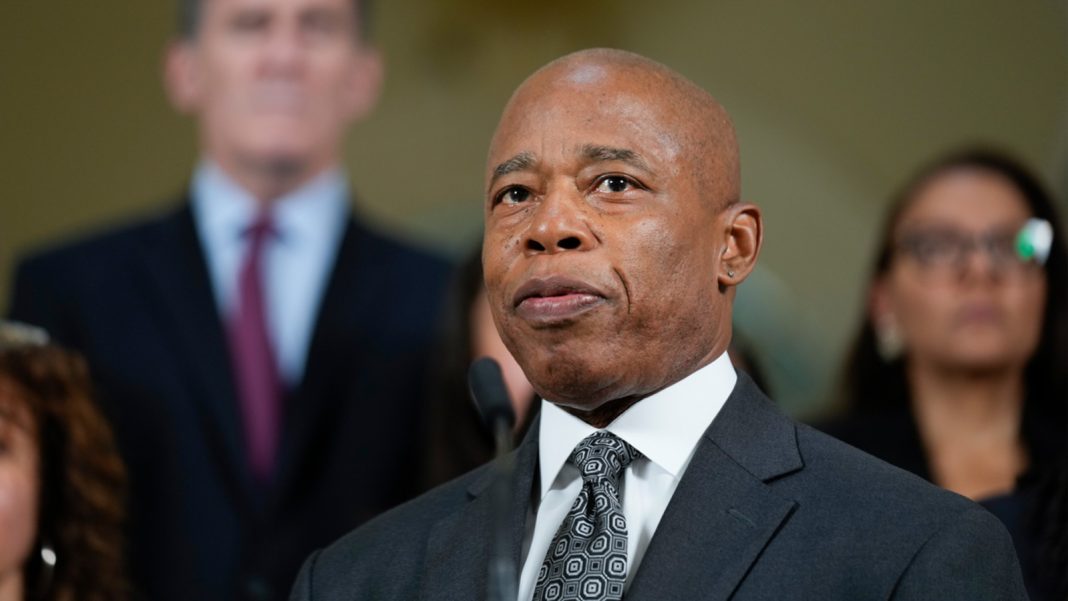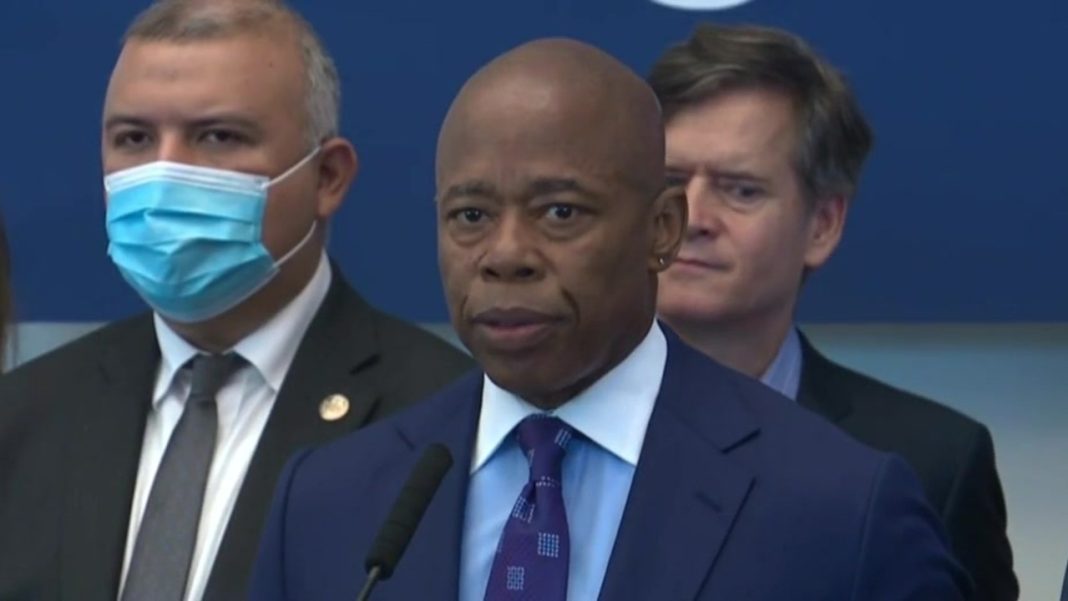In a historic turn of events, New York City Mayor Eric Adams has become the first sitting mayor in the city’s history to face indictment from a federal grand jury, a development that marks a significant moment in the political landscape of one of the nation’s largest cities. The nature of the charges against him remains sealed, leaving many to speculate about the implications for both Adams and the city he governs.
As the fallout from this indictment unfolds, questions arise regarding the potential for leadership transition. If Adams were to resign, the role of public advocate would fall to Jumaane Williams, who would then have the responsibility to call a special election to fill the mayoral vacancy. This intricate political dance underscores the uncertainty that accompanies such high-profile legal challenges faced by elected officials.
Responding to the indictment, Mayor Adams released both written and video statements, asserting his commitment to fight the charges vigorously. “I always knew that if I stood my ground for New Yorkers, I would be a target—and a target I became,” he stated, reinforcing his belief in his innocence. Adams has maintained that he is unaware of any wrongdoing within his administration, often referring to speculation about potential charges as mere “rumors and innuendo.” His defiance reflects not only a personal conviction but also a broader narrative of resilience that he has cultivated as a former police officer turned politician.
The backdrop of this indictment is a year-long series of federal investigations into Adams and his inner circle. Reports have surfaced of federal agents seizing phones and conducting searches at the residences of key aides, a tactic that has become increasingly common in corruption probes. Notably, the resignation of Edward Caban, Adams’ handpicked police commissioner, came after authorities issued a subpoena for his communications. This pattern of high-level departures raises questions about the operational integrity of the administration and the potential impacts on city governance.
Moreover, the investigations extend beyond personal conduct to encompass city contracts and the enforcement of regulations affecting nightlife establishments. This breadth of inquiry could have significant ramifications for New York City, particularly as it continues to recover from the economic and social upheaval caused by the COVID-19 pandemic. The city has seen a notable drop in violent crime under Adams’ leadership, a feat that many attribute to his dual approach of supporting law enforcement while also pursuing progressive policies.
With Adams facing these serious charges, the political landscape is rife with uncertainty. His administration has been seen as a crucial bridge between traditional law enforcement support and progressive reform, a balancing act that has garnered both praise and criticism. As a pivotal figure in the Democratic Party, his indictment may provoke deeper reflections on the ethical standards expected of public officials, particularly in a city that has historically grappled with issues of corruption and accountability.
As we await further developments in this unfolding story, the implications of Adams’ indictment extend far beyond his personal fate. They raise essential questions about governance, the rule of law, and the expectations placed upon those who serve in public office. The outcome of this situation could reverberate throughout the city, influencing not only the political landscape but also public trust in government institutions at a time when that trust is already precarious.
In the coming days, all eyes will remain on New York City as it navigates this unprecedented moment in its history, and as Adams prepares to make his case, the stakes could not be higher for him personally and for the future of the city he has pledged to serve.


